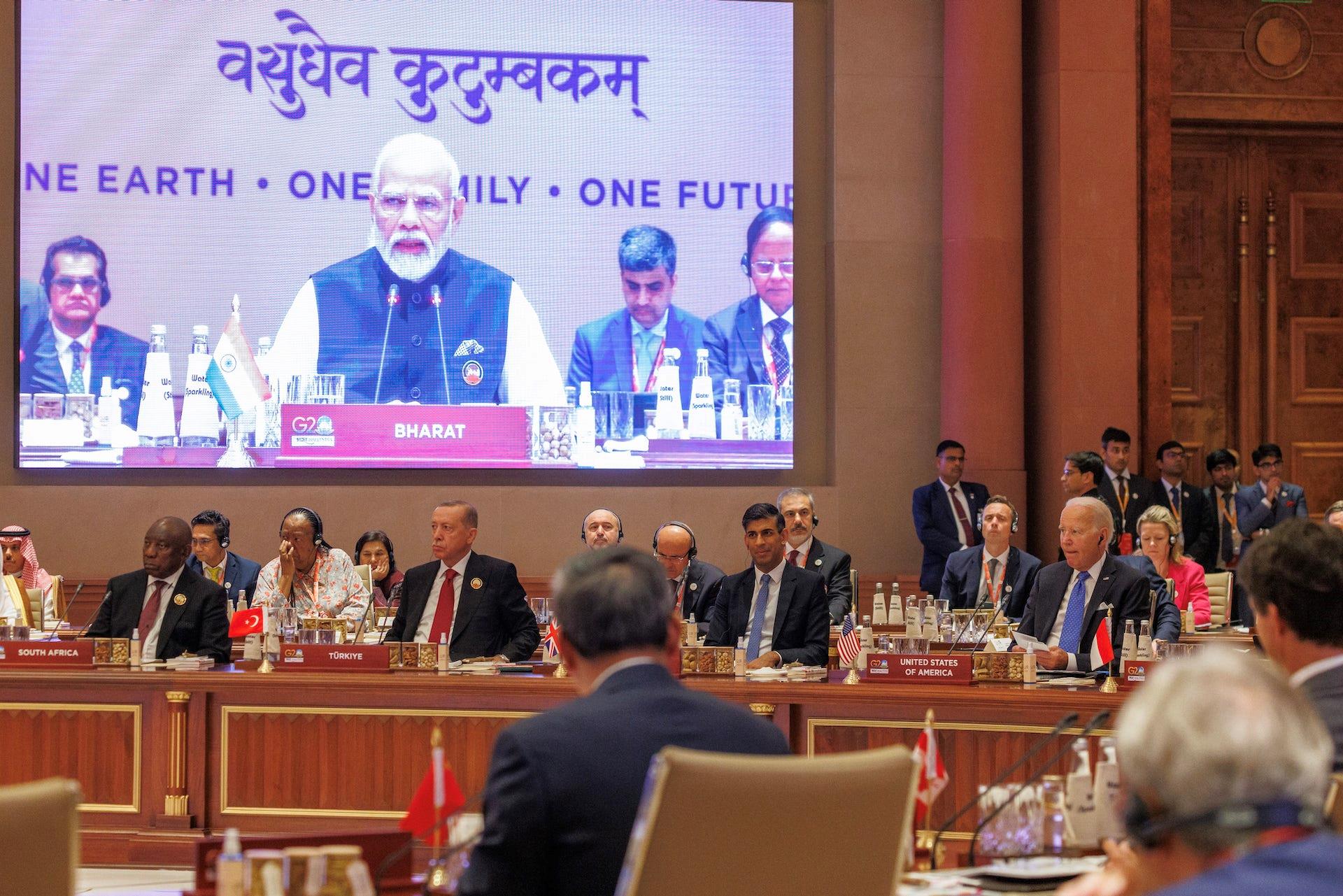(MENAFN- Asia Times) When India invited delegates attending the G20 summit in September 2023 to dinner with“the President of Bharat ,” rather than“the President of India,” it may have looked to the world like a simple case of postcolonial course correction.
The word“India” is, after all, an exonym – a placename given by outsiders. In this case, the name came from the British, who ruled the subcontinent from 1858 to 1947, a violent period of colonialism that later came to be called“the British Raj.”
“Bharat,” on the other hand, is the word for“India” in Hindi, by far the most spoken language in the nation . Alongside English, Hindi is one of two languages used in the Indian Constitution , with versions written in each language.
“Bharat” may, therefore, look like a well-reasoned and uncontroversial replacement for a term anointed long ago by outsiders – something akin to how Eswatini , Zimbabwe and Burkina Faso updated their countries' names from the colonial designations“Swaziland,”“Rhodesia” and“Upper Volta,” respectively.
But the use of“Bharat” has elicited outcry from the political opposition, some Muslims, and Hindu conservatives in the south, reflecting ongoing tensions in India between language, religion and politics.
Two different language families
My book with fellow linguist Julie Tetel Andresen ,“Languages in the World: How History, Culture, and Politics Shape Language ,” covers the language history and politics of India.
Hindi is the most-spoken language in India, but its use is largely relegated to a part of the country that linguists refer to as“the Hindi belt ,” a massive region in northern, central and eastern India where Hindi is the official or primary language.

Indian Prime Minister Narendra Modi welcomes delegates to the G20 leaders summit in front of a placard reading 'Bharat,' the Hindi word for 'India.' Dan Kitwood/Getty Images
Around 1500 BCE, a group of outsiders from Central Asia – known now as the Indo-Aryans – began migrating and settling in what is now northern India. They spoke a language that would eventually become Sanskrit . As groups of these speakers separated from one another and spread out over northern India, their spoken Sanskrit changed over time, becoming distinctive.
MENAFN29092023000159011032ID1107162540
Legal Disclaimer:
MENAFN provides the information “as is” without warranty of any kind. We do not accept any responsibility or liability for the accuracy, content, images, videos, licenses, completeness, legality, or reliability of the information contained in this article. If you have any complaints or copyright issues related to this article, kindly contact the provider above.